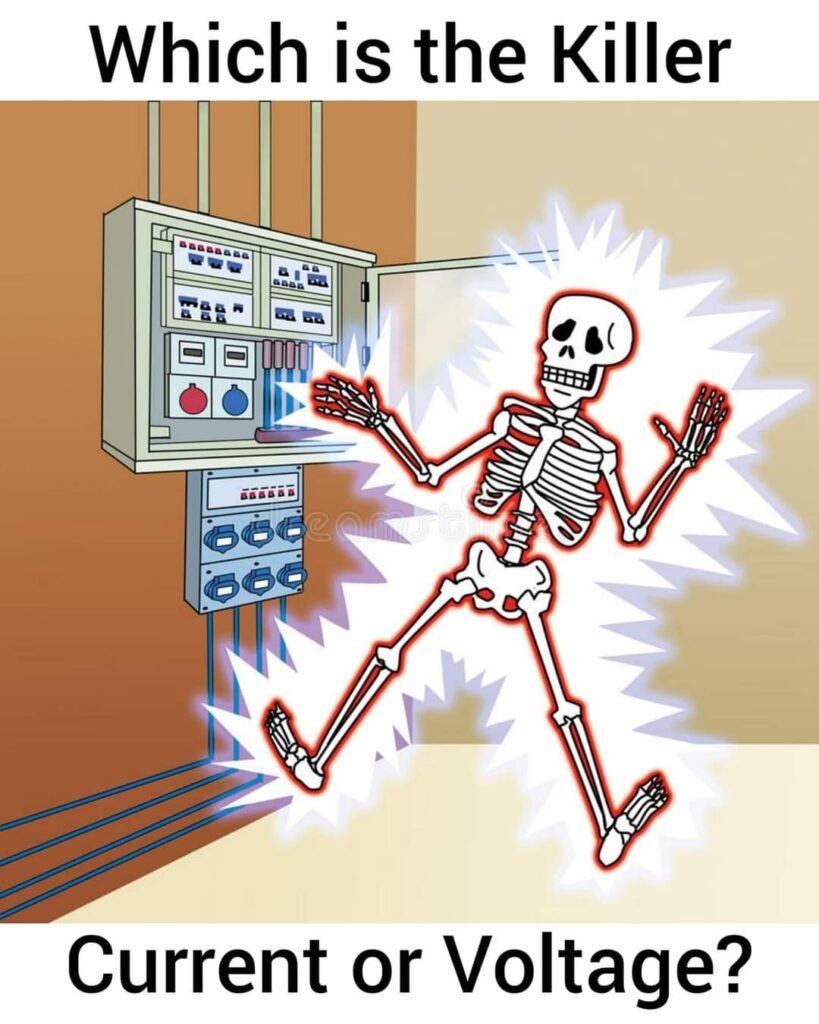Which is the killer current or voltage?
Which is the killer current or voltage?

Answer:
Answer: According to the sources I found, current kills, not voltage. But voltage is must to drive the current.
I.e. Amperes are responsible for electrocution, Not the Volts¹. However, electric current doesn’t just occur on its own: there must be voltage available to motivate the current to flow through a victim.
A current of a few milli-amps across the heart will be enough to kill.
A voltage of 100V or something like that is potentially enough to get a few milli-amps across your heart. So, a standard electrical socket is pretty dangerous because it can provide both the voltage and current necessary to kill you.
Ohm’s law states that V = I x R, where V is the voltage, I is the current and R is the resistance.
This means that the current is directly proportional to the voltage and inversely proportional to the resistance.
The human body has a certain resistance, which depends on many factors such as skin condition, moisture, contact area, etc.
The lower the resistance, the higher the current for a given voltage. The higher the current, the more damage it can cause to the body tissues and organs.